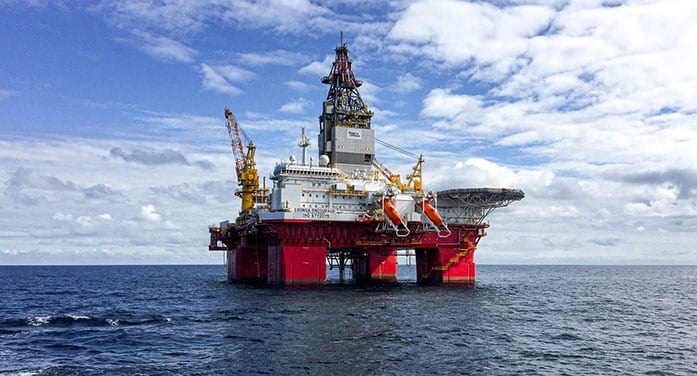 Crude oil demand is weak and the fundamental factors aren’t encouraging. Yet, most major oil-producing countries are moving to boost their output levels in the short run. Why?
Crude oil demand is weak and the fundamental factors aren’t encouraging. Yet, most major oil-producing countries are moving to boost their output levels in the short run. Why?
Saudi Arabia is pursuing plans to develop major offshore expansion projects to add an extra 1.15 million barrels per day (bpd) to its oil capacity by 2024, Argus reported. But some of these projects were deferred when the markets collapsed last year. Now they’re being given a green light. The recommissioned projects are expected to come on stream by late 2023 or early 2024.
Russia, the world’s second-largest oil-producing nation, is also endeavouring to maximize returns from crude oil exports before 2027 to 2029, an internal draft document on the Russian energy sector said.
“The main thesis in this strategy is the monetization of current reserves and resources – that is, the maximum monetization of exports,” Pavel Zavalny, head of the energy committee at the Duma, said at the presentation of the document on April 14. “Everything that can be produced should be produced while there is still demand to sell it.”
Iraq plans to take its crude capacity to eight million bpd by 2029 from the current 4.8 million bpd. In late March, the Iraqi oil minister told a press that his country’s output could reach 12 million bpd.
Late last year, Abu Dhabi’s Supreme Petroleum Council approved a $122-billion budget to raise crude capacity to five million bpd by 2030 from about four million barrels currently.
In the U.S., there’s also renewed interest in increasing output. The Permian Basin, the U.S.’s most prolific shale patch, seems set to produce crude oil at levels not seen since the start of the COVID-19 pandemic, Bloomberg reported. Output in the basin will reach 4.466 million bpd in May, the most in a year.
Venezuela holds the world’s largest oil reserves. According to data from the Organization of Petroleum Exporting Countries (OPEC), political mismanagement and U.S. sanctions have reduced its output by almost 1.9 million bpd, Matthew Smith said in a piece on Oilprice.com. It’s speculated that if Venezuelan President Nicolas Maduro can attract the much-needed investment, it could quickly lift oil production to over one million bpd. Maduro believes this is achievable.
Iran also plans to double its output capacity to 4.5 million bpd once the U.S. sanctions are lifted. Early in January, Iranian energy companies signed deals worth $1.2 billion to raise output. Under a 25-year agreement, Iran also expects huge Chinese investment in its energy sector.
Despite soft market conditions, why this rush to increase output in the near term?
Oil producers face a potentially catastrophic scenario in the not-too-distant future, oil consultancy Wood Mackenzie said. The report underlined that the Brent crude oil price could be somewhere between US$10 and US$18 per barrel in 2050 if countries around the world move to limit global warming by two degrees Celsius.
In this scenario, the study projects that global oil demand would begin to fall as early as 2023, from roughly 100 million bpd to about 35 million bpd by 2050.
Goldman Sachs also paints a grim long-term crude picture. In a Bloomberg report, an official with the investment banker was quoted as expecting “anemic” demand for oil from the transport sector after 2025.
“Government policies driving higher efficiency gains and lower emissions have had the strongest bearing on road transport demand,” Goldman analysts said in the report.
The transport sector is the largest consumer of crude oil, but the wider adoption of electric cars will undermine demand, according to Goldman Sachs, and it could peak by 2026.
A return of demand to pre-pandemic levels won’t happen at all, according to the investment bank.
So the rush to monetize oil now seems understandable.
Toronto-based Rashid Husain Syed is a respected energy and political analyst. The Middle East is his area of focus. As well as writing for major local and global newspapers, Rashid is also a regular speaker at major international conferences. He has been asked to provide his perspective on global energy issues by both the Department of Energy in Washington and the International Energy Agency in Paris. For interview requests, click here.
The views, opinions and positions expressed by columnists and contributors are the authors’ alone. They do not inherently or expressly reflect the views, opinions and/or positions of our publication.
© Troy Media
Troy Media is an editorial content provider to media outlets and its own hosted community news outlets across Canada.


